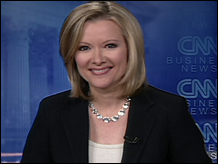|
|
|
|

|
| CNN's Gerri Willis shares five tips on how to reduce your health care costs. |
Play video
|
|
|
|
|
|
NEW YORK (CNN/Money) -
Americans pay more for health care per person than citizens anywhere else in the world -- as much as 53 percent more than any other country, according to a recent study published this month in Health Affairs magazine.
In today's 5 tips we tell you what you can do to cut your health care costs.
1. Flex your medical spending
Employees should consider flexible spending accounts. Depending on your company, you can enroll in an FSA beginning as soon as September. Today flexible spending accounts are even more attractive because you're able to carry over any excess cash you have in the account until March 15.
These FSAs are a great deal because it's all pre-tax dollars. An employee chooses to set aside a specific amount, which is usually up to $4,000 or $5,000 annually, according to John Lipold of the IRS. With every paycheck, a proportion is distributed into the account. The money in your FSA can pay for things like over-the-counter medication and doctor co-pays.
2. Just say no
Consider that drug companies spent over $7 billion last year to send drug representatives to doctors' offices, according to pharmaceutical consulting company IMS Health. And all those TV and magazine ads? That cost the drug industry about $4 billion last year.
So don't be swayed. Those drugs that are heavily advertised usually have the highest cost, too. Do your homework and comparison shop.
Consumer Reports compiles reports on the most effective and valuable drugs. Check out the report at www.crbestbuydrug.org. You can also go online to check pharmacy prices at www.costco.com, www.familymeds.com or www.drugstore.com.
The good news is that more and more adults are going online for information. Harris interactive released a poll recently that says 89 percent of adults looking for health information online have been successful in finding the information they seek. What's more, 90 percent say they believe the information is very or somewhat reliable.
3. Screen yourself
Early detection can save a ton of money, if not your life, in the long run. For a free, personalized on-line health evaluation, go the Great American Health Check at www.cancer.org.
The National Center for Disease Control also has a program that provides free or low cost screenings for breast and cervical cancer. For more information on where to go, call the Center for Disease Control at (888) 842-6355 or go to www.cdc.gov/cancer.
4. Think generic
The cost of brand name drugs increased at three times the rate of inflation last year, says Steve Hahn of the AARP. So get generic drugs when you can. By using generic drugs you could save $1,200 to $2,000 per prescription annually, according to Consumers Union. Generic drugs are just as effective as their more expensive counterparts. And they have to meet the same FDA guidelines.
Or, get comparable drugs that may be less expensive, advises David Gross of the AARP. Go to the AARP's Web site to get more information on the names of drugs that will treat your condition. That's at www.aarp.org/health.com.
5. Deduct it
You can write off your medical expenses each year if costs exceed 7.5 percent of your adjusted gross income. While this is a high threshold, you can make the numbers work in your favor.
Don't forget to scrutinize the medical expenses of everyone on your plan. Your spouse and dependents (even your parents) can count toward reaching this limit. You can also deduct travel expenses to and from medical facilities or uninsured medical treatments like hearing aids.
In some cases you can get deductible medical expenses from certain smoking cessation or weight loss programs. Check out Publication 52 on the IRS Web site, www.irs.gov, to get a complete list of what could count toward your medical deductions.
Gerri Willis is a personal finance editor for CNN Business News and the host for Open House. E-mail comments to 5tips@cnn.com.

|